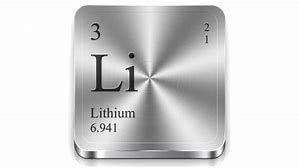California Banks on Lithium Extraction and Geothermal Holds the Key

“California has the potential to be the leading supplier of lithium in the world,” said California Energy Commission Chair David Hochschild.
It’s a bold statement from the state level, but one that is backed by both a growing demand for the metal and the development of new geothermal extraction technologies.

Lithium is a key ingredient in lithium-ion batteries that are not only used in many everyday personal tech items like laptops and cell phones, but are crucial to the operation of electric cars and the storage of energy that helps burgeoning renewable industries that cannot generate power 24/7. For example, new solar farms in California are being built with lithium- ion batteries, which can provide a few hours of electricity after sundown. And many major original equipment manufacturers (OEMs) in the auto sector and EV battery manufacturers have been seeking a secure U.S. lithium supply. Yet currently, it is China, Japan, and South Korea that produce 85 percent of the lithium chemicals required to power electric vehicles.
“We’re on the brink of a boom in the geothermal industry,” explained Will Pettitt, PhD, during his talk at the USEA 16th Annual State of the Energy Industry Forum in Washington, DC in January of this year. “It also means there are significant opportunities for collaboration across industries, and geothermal is at the center of that. Combine this win-win situation for the renewable energy sector with the benefits that geothermal can bring to the oil and gas industry, and development of critical mineral recovery, then it means that geothermal can facilitate collaboration across wide and disparate parts of our energy and mineral sectors for the benefit of everybody.”
Geothermal power can provide both the baseload 24/7 power and the brine that is rich in lithium. Though extraction is not new to the geothermal industry, it has had its challenges in the past. “One of the issues with previous attempts was ‘bolting-on’ lithium extraction systems downstream from existing power plants. These systems were basically ‘force-fed’ spent brine which was not ideal, “explained Controlled Thermal Resources (CTR) Chief Operating Officer Jim Turner, who has managed geothermal plants in the Salton Sea region for over 20 years.
On March 16, CTR formally announced its technical partnership with direct lithium ex- traction specialists Lilac Solutions, which has recently developed a new extraction technology using unique ion exchange beads developed by its team in Oakland. This is a significant deviation from prior efforts within the industry, where the focus was to adapt conventional aluminum- based absorbents that did not perform well.
“Lilac Solutions’ technology offers exceptionally high lithium recovery and lithium selectivity, enabling low cost production,” said Turner. “The Lilac team has proven these results with thousands of hours of test work on the Salton Sea geothermal brine chemistry.”
Lilac also confirms that it has conducted numerous large-scale tests on brine samples from around the world and received independent verification on the performance of the technology, which is significantly cleaner, faster, cheaper, and more scalable than existing mining technology. CTR hopes to create a major new domestic source of this mineral and is currently negotiating additional contracts for power and lithium sales.
In fact, the amount of interest that has been generated within the state around lithium extraction was reflected in the proposed awards announced on March 20 by The California Energy Commission (CEC).
CTR was awarded net funds of $4,460,334 for two projects related to its Hell’s Kitchen Geothermal LLC Lithium & Power Project: improved silica removal for enhanced geothermal plant performance and its Geothermal Lithium Extraction Pilot.
BHE Renewables, part of Berkshire Hathaway Energy, also won a $6 million grant funding opportunity award to build a lithium recovery demonstration project at their Salton Sea Geothermal Lithium Recovery Demonstration Project near Calipatria.
In addition, Materials Research LLC, based In Palo Alto, had a proposed award for pilot scale recovery of lithium from geothermal brines for $1,878,634.
These awards signal an endorsement of the emerging lithium industry by California’s government, and a commitment to supporting emerging geothermal-related solutions that could power the world’s technologies.
As Pettitt reflected in his talk at the USEA Forum, “We are now inside an energy revolution. Society will need a mix of renewable and clean energies as well as a huge leap in energy efficiency and heat management. An “all-of the-above” clean energy strategy. It’s clear that society needs geothermal now.”
